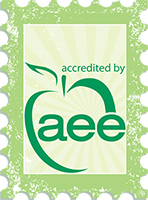2021 LEGENDS OF THE RIO GRANDE SEMESTER BLOG #6
“There is no water in the Rio Grande.”
“What?”
“There is no water in the Rio Grande.”
“What are we going to do?”
“We keep going.”
It took three days to plan, pack out, and mentally prepare ourselves for a brand new expedition. And you can believe me, reader, we killed it.
The expedition plan now is to cataraft for about a week in the Grand Canyon, then bikepack for 21 days on the Arizona Trail, from Tusayan, on the South rim of the Grand Canyon, to the bustling city of Phoenix. Leaving Kroka campus on Friday we were exhausted, excited, and so ready to hit the road. Loading into the van, we looked around at this place we call home, these people we love, and held strength within ourselves to start this journey.
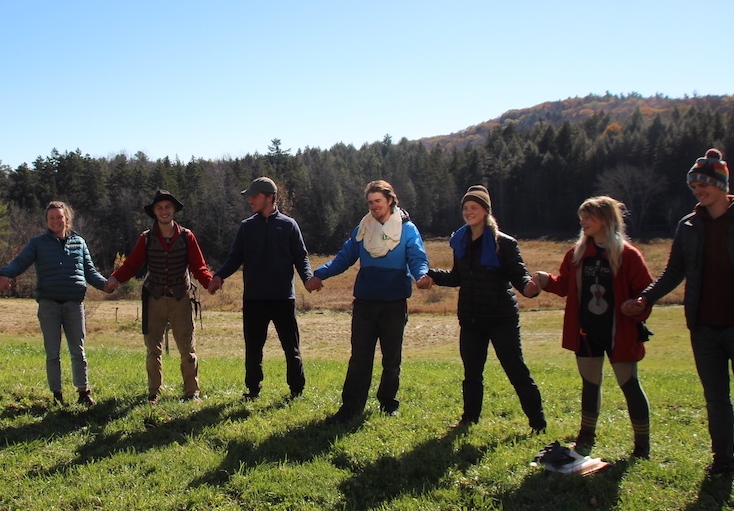
The parting circle before leaving Kroka Basecamp
We ate an assortment of eggs, apples, and bars, and within moments the van became a living thing. We stopped to buy groceries, stretched, ran and danced through the rainy parking lot, light reflecting on the wet pavement in inky color.
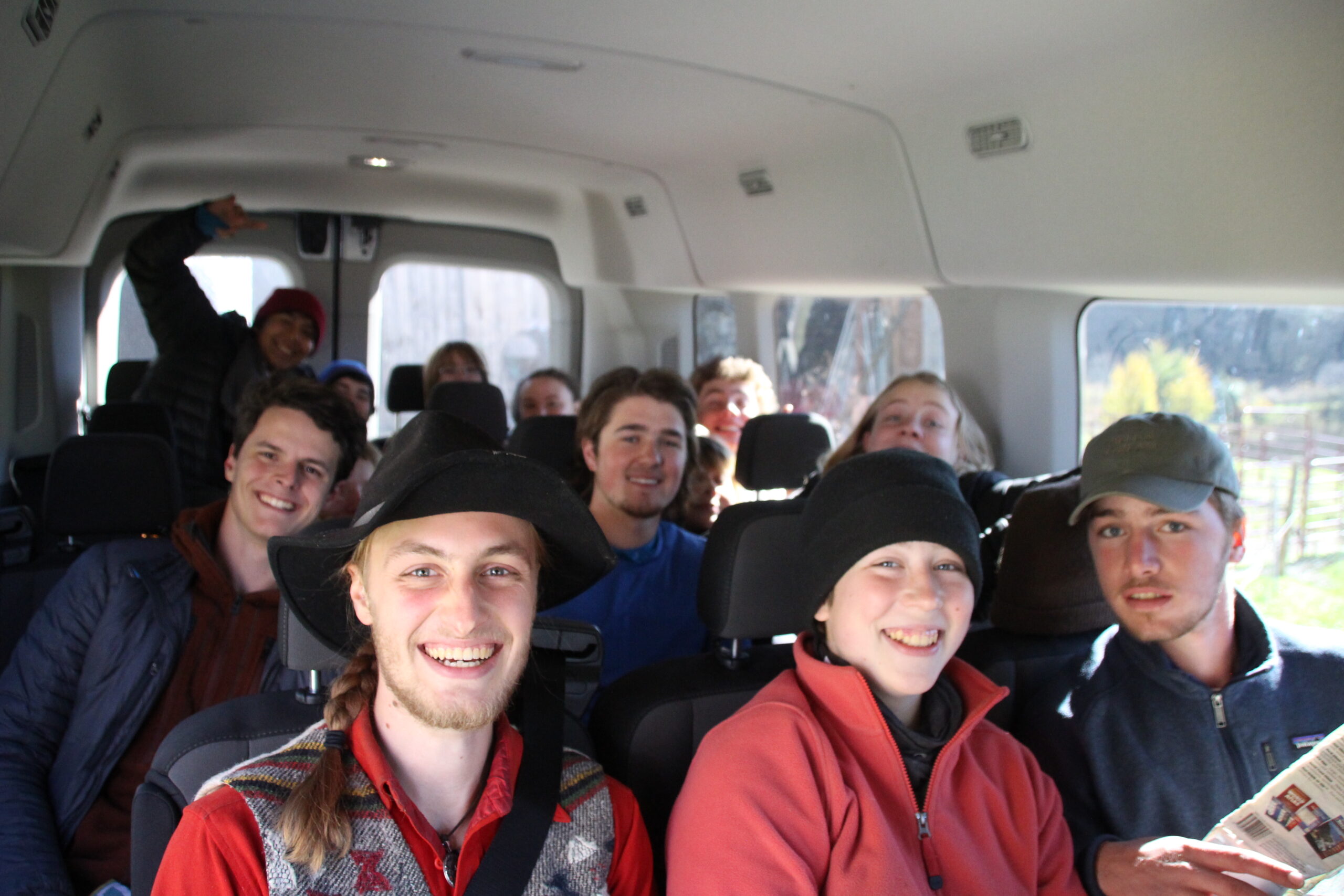
All packed up and bound for Arizona!
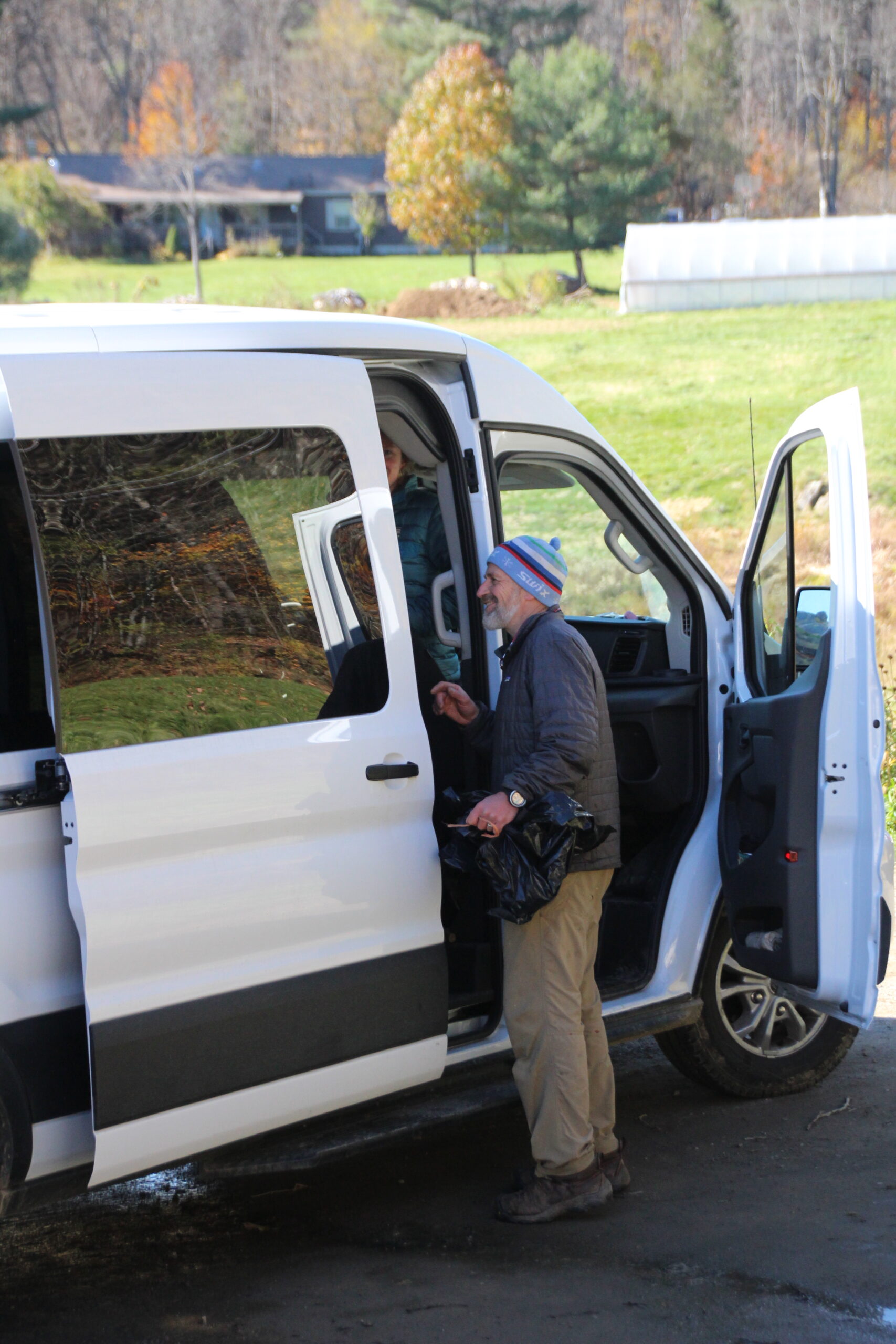
Misha bids Semester farewell
We arrived at Blue Heron Farm in Lode, NY and slept in the hay like field mice. We met Erik and Birgit, the farm owners, and spent the next day on that land. We worked on the farm deconstructing the season’s tomato trellises, taking out old stakes, cutting strings and eating tomatoes. My feet were helplessly soggy in my shoes, so I kicked them off, letting the mud become a part of my soles. While working we smelled the unmistakable scent of chilies. Diego introduced himself and our group to four Mexican women who lived on the farm, and before we knew it they made us tamales–which tasted of sweet prune and spicy chicken–and gifted us dried hot peppers. Though I never saw their faces, never held their hands, I was humbled by their kindness.
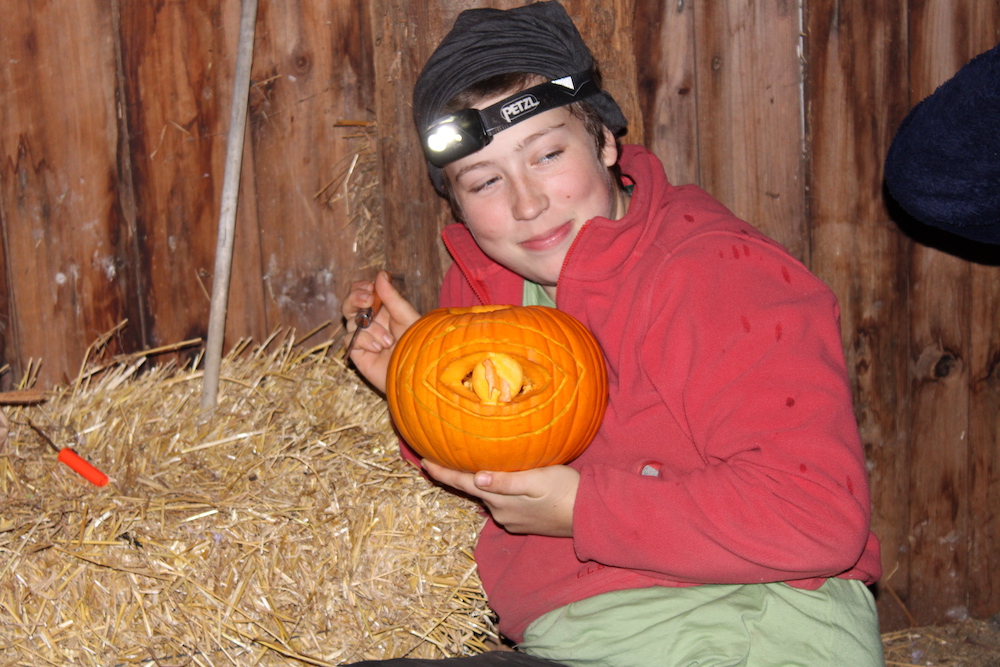
Aeron carving pumpkins at Blue Heron Farm on Halloween
We drove through the Shire-like agricultural lands of New York, Pennsylvania, Virginia and West Virginia, and then through the Appalachian Mountains and started our academic work on the coal mining that took place there. In pairs, we presented on different themes and case studies related to coal and its economic and social influences as a way to teach each other about the these issues.
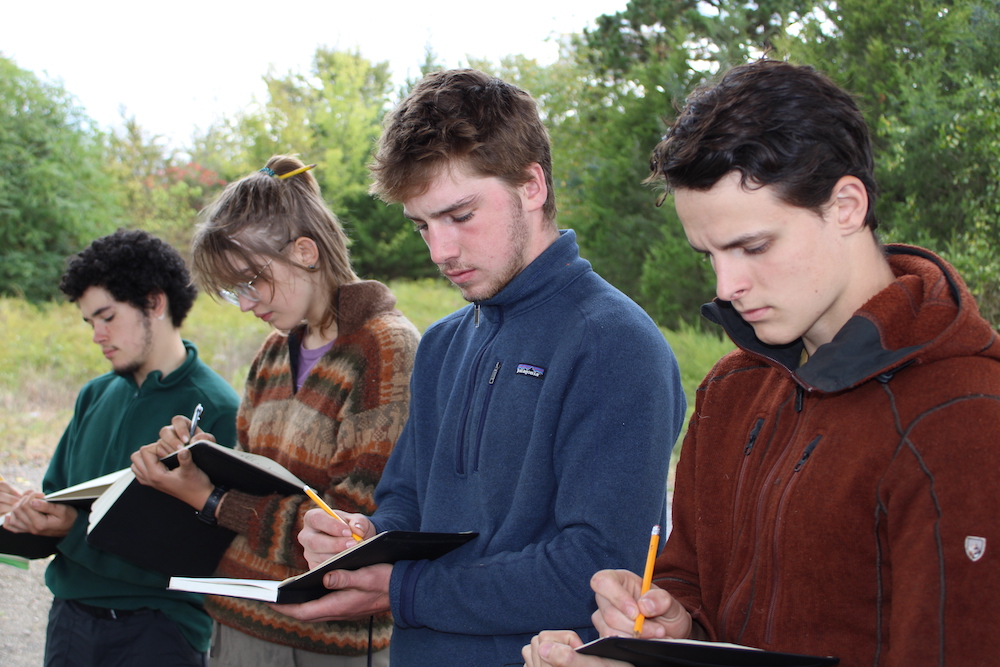
Enroute studies
Hours and hours of the days were spent in the van, and our three heroes (Sam, Ru and Trish) relentlessly rocketed us towards our destination, taking sleep shifts in the process.
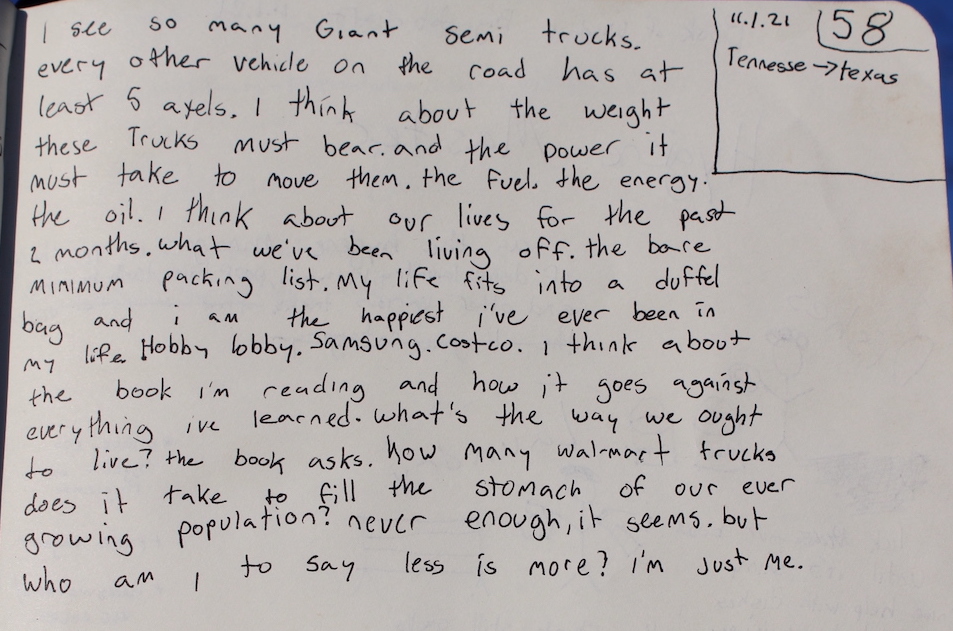
Finn’s journal entry reflecting on cross-country travel
As we drove, the land changed dramatically, with new flora lining the roadways. “I don’t know these trees!” Cecily would say, excitement blooming in her curious face.
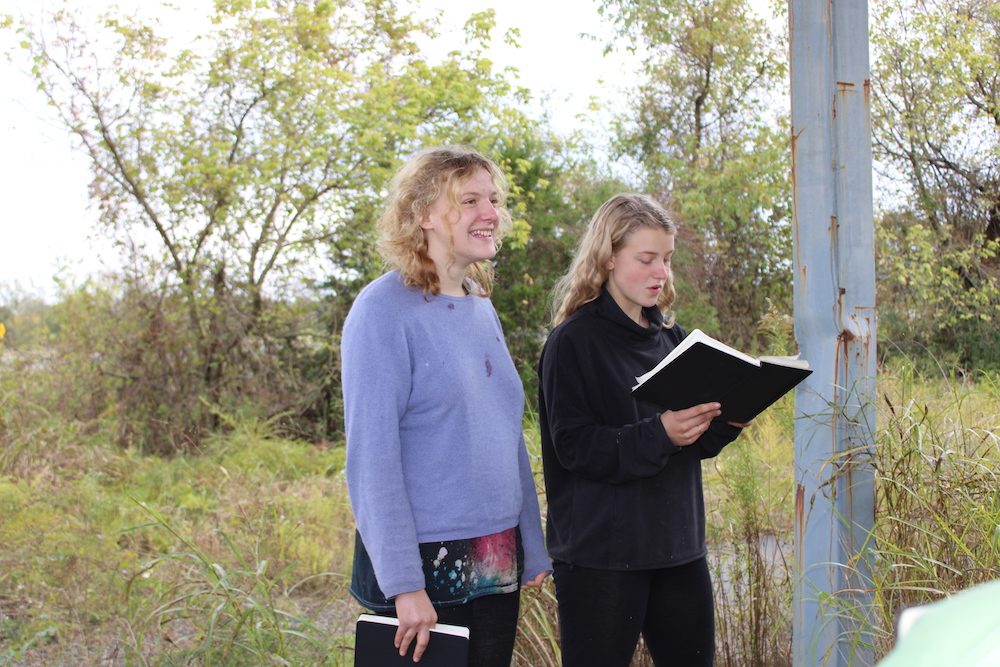
More on-the-road presentations, teaching and learning
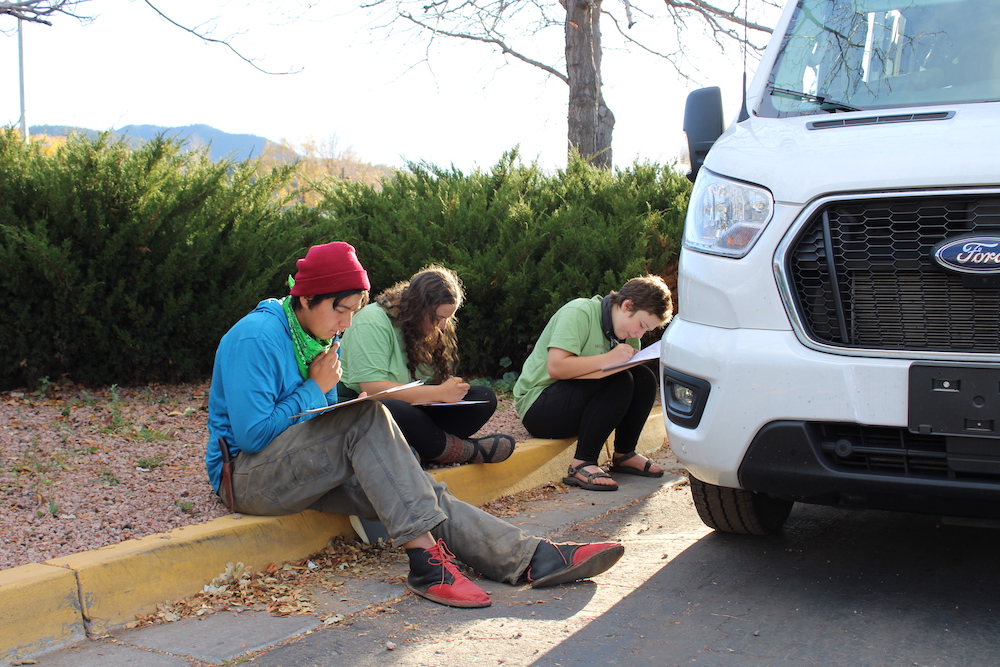 As we move further south and the weather warms, I can’t help but be amazed by the changing color palettes of the landscapes. In Texas and Arizona I tried my best to lay them out onto my paper.
As we move further south and the weather warms, I can’t help but be amazed by the changing color palettes of the landscapes. In Texas and Arizona I tried my best to lay them out onto my paper.
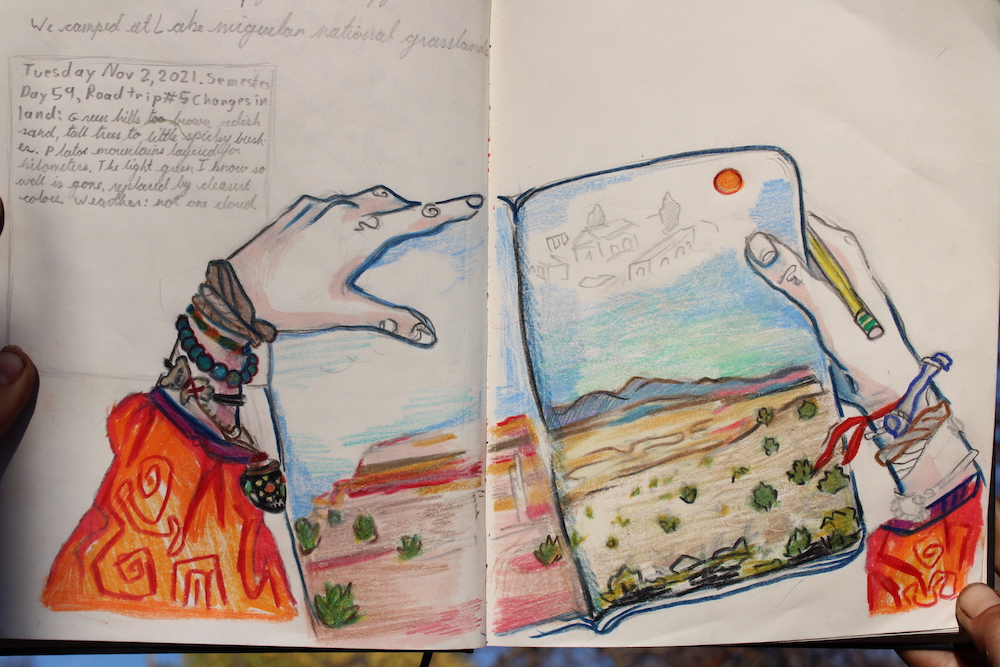
Ave’s journaling of the changing landscape
Now I sit cross legged on the sidewalk somewhere in the desert Southwest. Finn and Zef have gone to fill up our water bottles, Zzyn is washing our bowls, Willow and James are fetching groceries for the coming canyon expedition, and Samuel hops about playing his penny whistle.
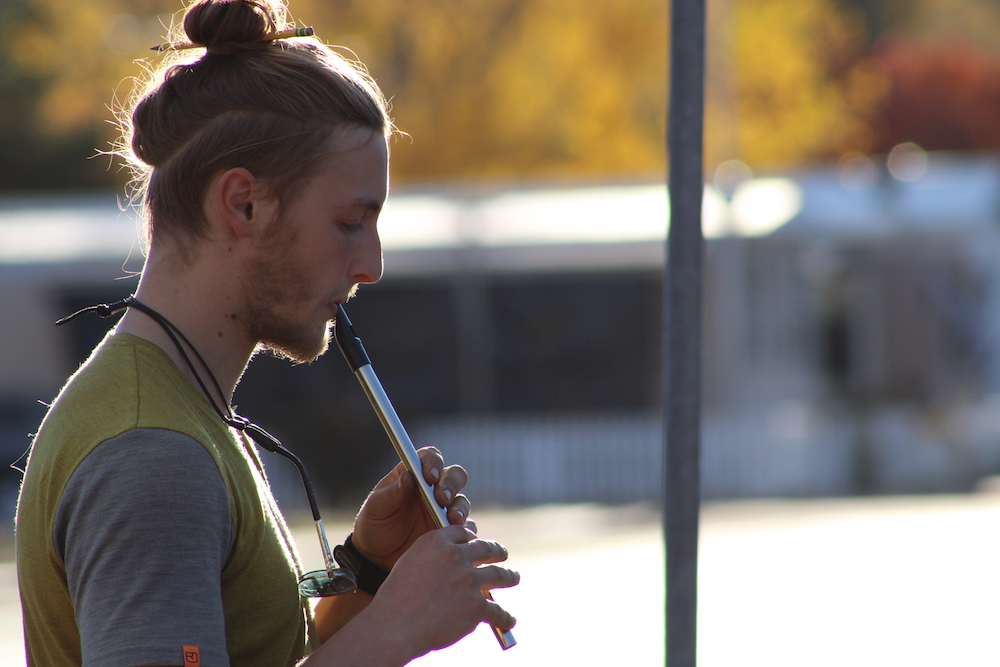
Samuel serenading
After more than 2500 miles of driving–wearing t-shirts and shorts, with the low westward sun warm on our skin–we head to the Canyon tonight. We will put-in on the Colorado River tomorrow morning and set off in our loaded catarafts. Adventure awaits!
‘Til next time,
–Your scribe, Avelea
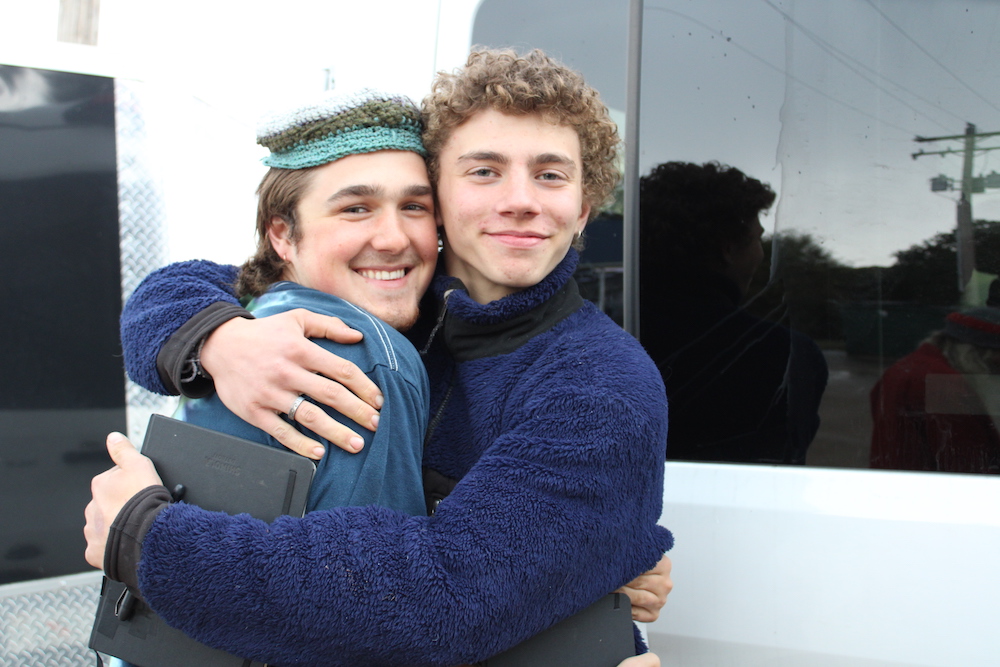
Zef and Finn

